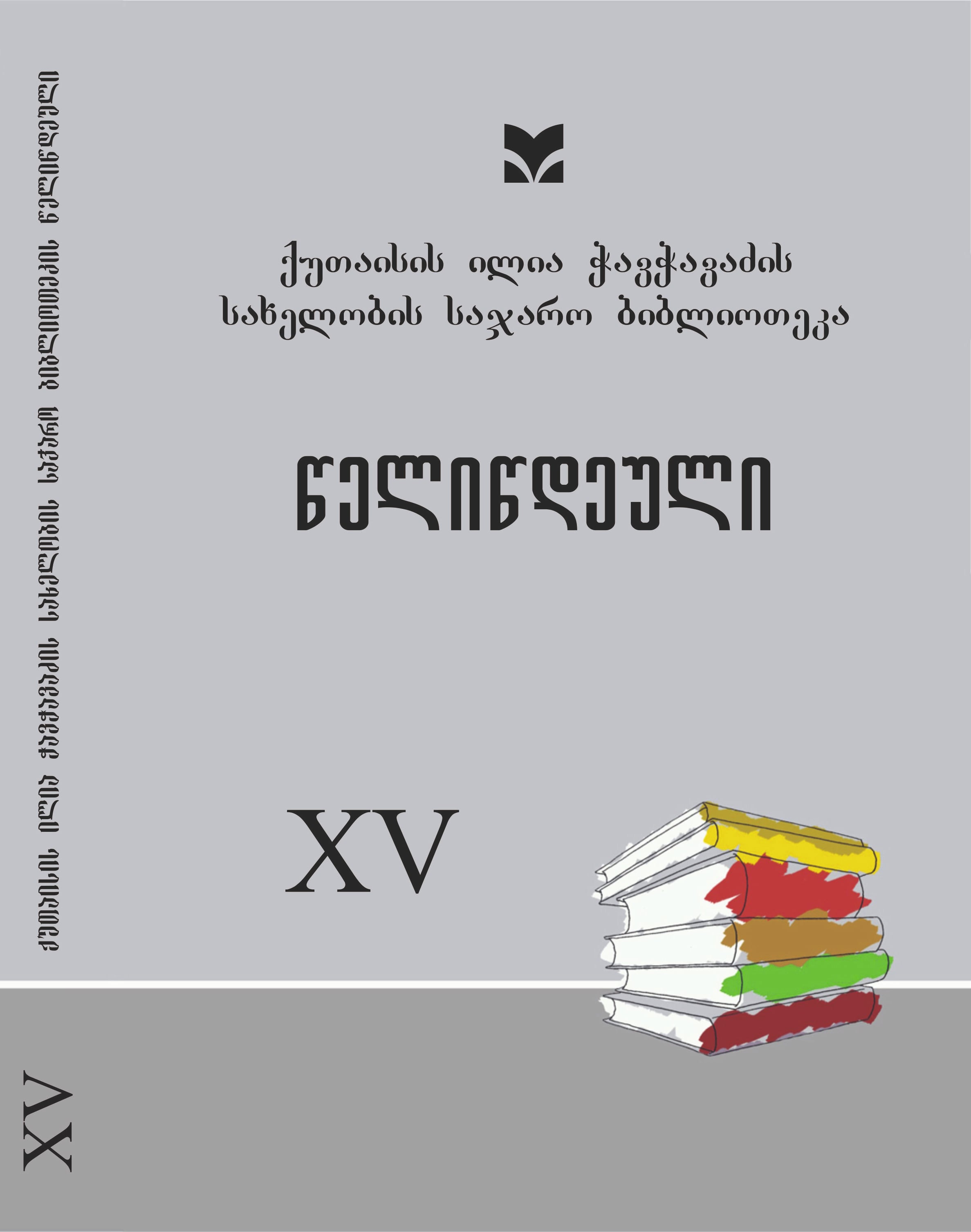Interference Issues in the Speech of IDPs Living in Imereti
DOI:
https://doi.org/10.61491/yk.15.2023.8045Keywords:
Speech of refugees living in Imereti, language interference of refugees from Abkhazia, dialect vocabularyAbstract
Over the past thirty years, significant changes have been observed in the speech of the population displaced from Abkhazia. Our research focuses on studying interference issues, a topic that has not been extensively researched before in terms of recording and analyzing the speech peculiarities of IDPs from Abkhazia. The research was conducted in regions of Georgia where a large number of IDPs are densely settled. This study specifically investigates the speech characteristics of IDPs living in Imereti, particularly in Tskaltubo.
It is important to note that the majority of displaced persons from Abkhazia now residing in Tskaltubo were originally from Lechkhum, bringing with them the distinct speech peculiarities typical of the Lechkhum dialect. The speech of Lechkhum people from Abkhazia prominently features dialectal variations in household and economic sector vocabulary. Additionally, it includes an archaic layer (understood as dialectical archaisms), vocabulary reflecting ethnographic features, forms influenced by the Russian language, and local idioms, painting a fascinating linguistic portrait. Over time, these IDPs have preserved the Lechkhum dialect while incorporating nuances characteristic of the speech of Georgians living in Abkhazia. During their displacement, further peculiarities emerged through interaction with the Imereti region.
The speech of Svans displaced from Abkhazia also exhibits interference characteristics. Observations reveal that the ergative structure, similar to that found in Svan dialects of the Enguri valley, manifests with its own narrative style and formants, including bi- and even tri-basicality.
The study of the speech of IDPs from Abkhazia and its linguistic analysis holds national significance, provides valuable insights from a linguistic perspective, and is scientifically intriguing from a Georgian standpoint. Notably, the recorded texts contain crucial information for linguistic analysis, revealing forms not attested in the root dialect. The collection and analysis of such texts over time enable the identification of internal dialectal trends.
It is evident that the speech of displaced individuals from Abkhazia integrates various linguistic and dialectal elements, resulting in a distinct interference phenomenon. This overlay of characteristics from different language and dialectal codes represents an often uncontrolled process of influence, where one language or dialect can easily influence another.
Based on the analysis of empirical linguistic (dialectal) material, this publication presents research findings that address the following questions comprehensively:
- What factors contribute to interference changes?
- What are the levels of interference?
- How do lexical and grammatical borrowings manifest in the speech of IDPs?
- What are the dynamics of interference and other types of language changes?




